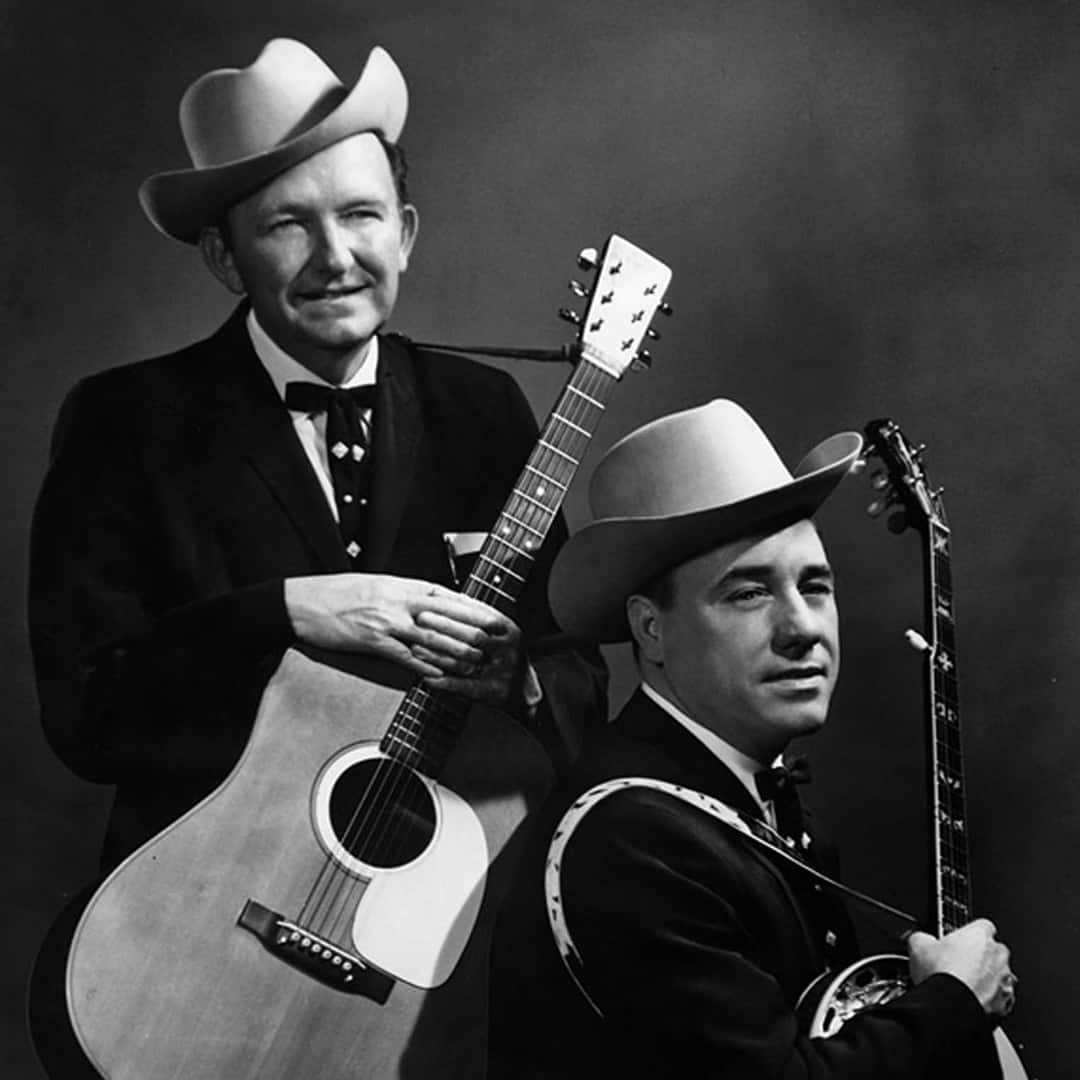Ricky
Skaggs

-
Inducted2018
-
Born
July 18, 1954
-
Birthplace
Cordell, Kentucky
Ricky Skaggs was arguably bluegrass music’s hottest young picker and singer in the 1970s, both heir apparent to the reigning legends and a leader of the progressive bluegrass movement. He adapted his sound enough to become a mainstream country star in the ’80s and, since 1990, has become bluegrass’s leading ambassador.
Starting Early
Ricky Lee Skaggs grew up in the mountains of eastern Kentucky, where he heard his parents sing, listened to their bluegrass 78s, and soaked up country sounds from Cincinnati radio station WCKY. Skaggs had been playing mandolin less than a year when, in 1959, Bill Monroe invited the five-year-old-boy onstage to sing the Osborne Brothers’ “Ruby.” The youngster sang the same song on Flatt & Scruggs’ television show two years later and eventually mastered fiddle and guitar as well.
By 1969, Skaggs had met another young Kentuckian, Keith Whitley, assembled a band called the East Kentucky Mountain Boys, and did note-perfect imitations of the Stanley Brothers. One night in 1970, Skaggs and Whitley went to see Ralph Stanley in West Virginia, but when the headliner was late, the club owner asked the two teenagers to entertain the crowd.
Arriving mid-set, Stanley liked what he heard and soon hired both Skaggs and Whitley. Skaggs stayed with the Clinch Mountain Boys through 1974, and during that time, he and Whitley recorded the album Second Generation Bluegrass, backed by Stanley and his band.
Songs
00:00 / 00:00
00:00 / 00:00
00:00 / 00:00
A Break, Then More Bands
Skaggs then worked outside of professional music in Washington, D. C., but before long, he was playing with the Country Gentlemen and then J. D. Crowe & the New South, both pioneering progressive bluegrass acts.
Next, Skaggs formed his own group, Boone Creek, which included dobro player Jerry Douglas, and recorded albums for Rounder (1977) and Sugar Hill (1978). Skaggs also released solo collections for Rebel, Sugar Hill, and Rounder, and recorded a duet album with guitarist Tony Rice.
Skaggs replaced Rodney Crowell in Emmylou Harris’s Hot Band in 1977 and eventually helped her make the bluegrass-inspired album Roses in the Snow (1980). In turn, Harris sang on Skaggs’s Sweet Temptation, a 1979 solo effort that also featured Rice, Douglas, the Whites, and fellow Hot Band members Tony Brown, Emory Gordy, and Albert Lee.
Ricky Skaggs found only limited success with his 1995 album Solid Ground; he also alienated some fans by becoming increasingly outspoken about his Christian beliefs. At the same time, however, he emerged as a leading advocate for tradition-based country sounds.
Videos
“Highway 40 Blues”
Music City News Awards, 1983
“Hummingbird”
Nashville Now, 1991
Photos
-
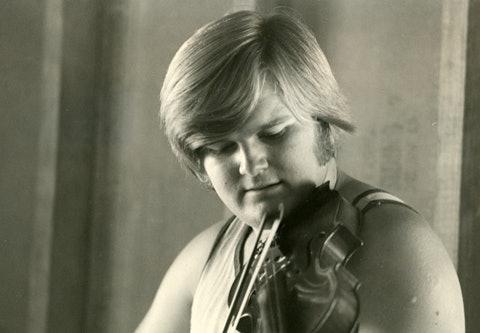
Ricky Skaggs, 1973. Photo by Tom Henderson.
-
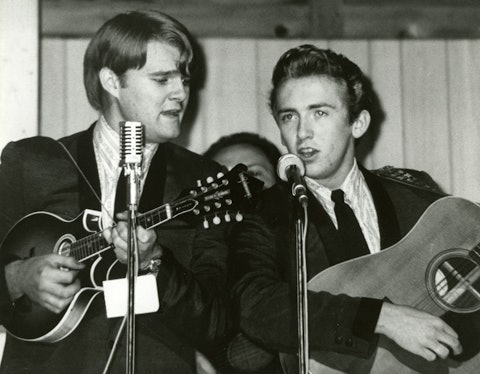
Ricky Skaggs and Keith Whitley, 1970s.
-
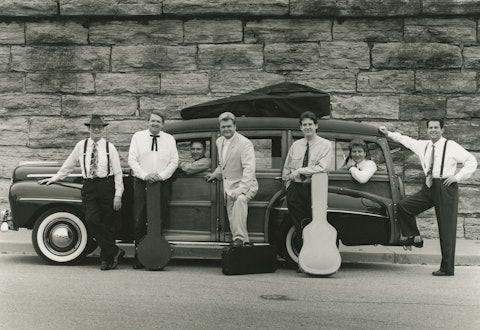
Ricky Skaggs (second from left) and Kentucky Thunder, 1997.
-
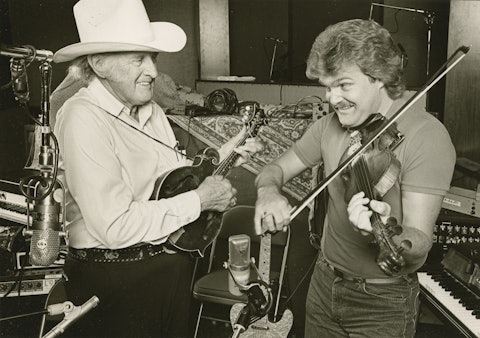
Ricky Skaggs and Bill Monroe, 1984. Photo by Larry Dixon.
-
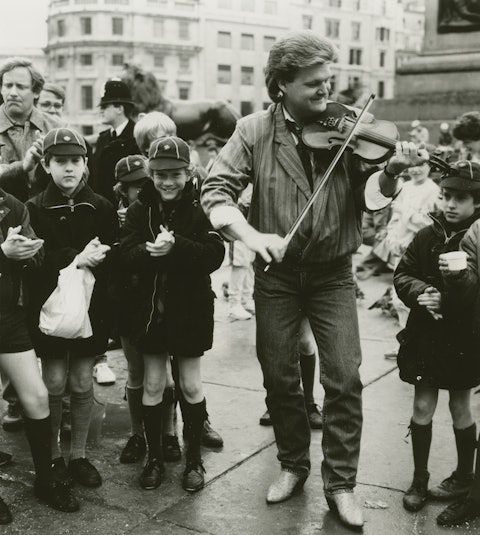
Ricky Skaggs in London, England, 1985.
-
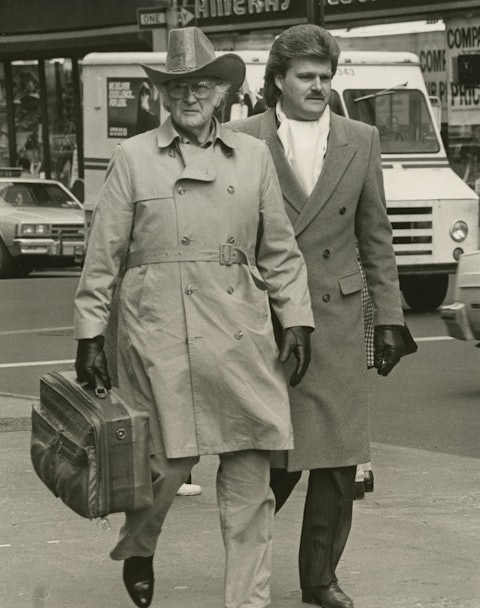
Ricky Skaggs and Bill Monroe in New York’s Times Square while filming the music video for Skaggs’s song “Country Boy,” 1985. Photo by Chuck Puli.n
-
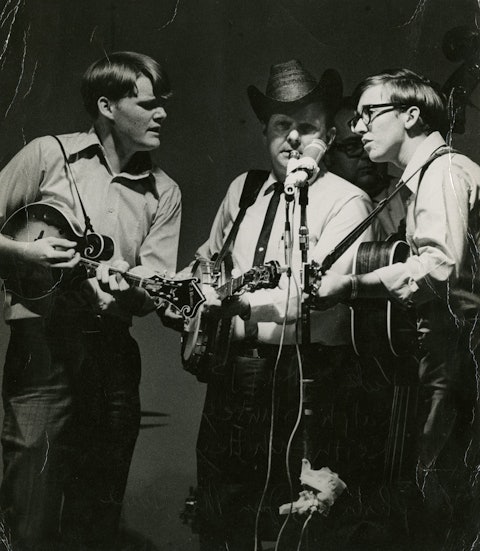
From left: Ricky Skaggs, Ralph Stanley, and Keith Whitley performing in Berryville, Virginia, 1970s. Photo by Jim McGuire.
-
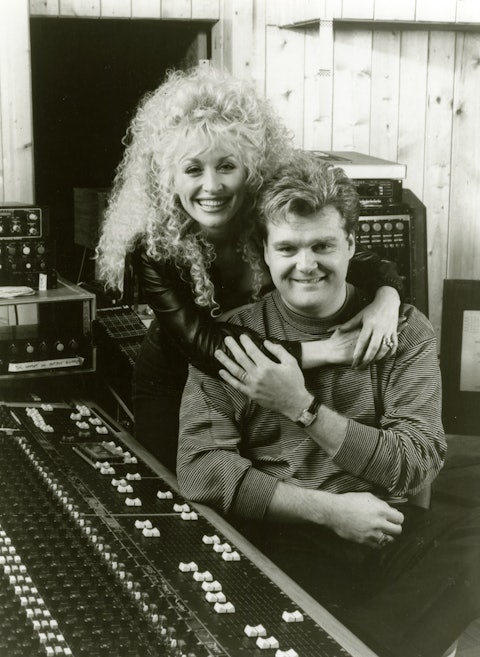
Ricky Skaggs and Dolly Parton during the recording of her White Limozeen album, 1989.
-
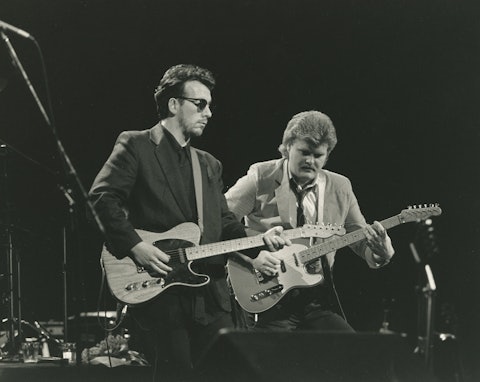
Ricky Skaggs and Elvis Costello performing in London, England, 1985. Photo by David Redfern.
-
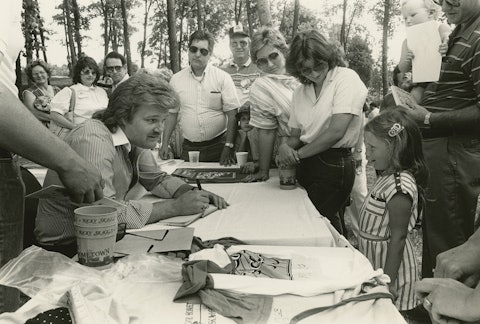
Ricky Skaggs signing autographs at Fan Fair in Nashville, 1984.
Solo Success in the 1980s
Both Roses in the Snow and Sweet Temptation served as blueprints for Skaggs’s first major-label project, Waitin’ for the Sun to Shine (Epic, 1981). The basic sound was still bluegrass, but the banjo had been eliminated; drums and electric bass had been added; and the vocal harmonies were sweet and full rather than mournful and lonesome. The result was a fresh, unusual hybrid that appealed to broad audiences and produced four chart singles—including the back-to-back #1s “Crying My Heart Out Over You” and “I Don’t Care”—and netted Skaggs two Country Music Association awards, the Horizon Award and Male Vocalist of the Year.
Just as Waitin’ for the Sun to Shine was breaking in the summer of 1981, Skaggs married one of his harmony singers, Sharon White of the Whites. The Whites would continue to pursue their own career while contributing to many of Skaggs’s studio recordings.
Skaggs joined the Grand Ole Opry in May 1982 and soon celebrated with the album Highways & Heartaches. During 1982 and 1983, the album yielded three #1 singles: Guy Clark’s “Heartbroke,” the Jim Eanes number “I Wouldn’t Change You If I Could,” and Larry Cordle’s “Highway 40 Blues.”
Don’t Cheat in Our Hometown (1983) also produced three chart-topping singles: the title tune, Mel Tillis’s “Honey (Open That Door),” and Bill Monroe’s “Uncle Pen.” In 1984, Skaggs released his fourth-straight gold album, Country Boy, which includes the #1 title track. His 1985 concert album Live in London featured a guest appearance by Elvis Costello on “Don’t Get Above Your Raising” and sent “Cajun Moon” to the top of the charts. That same year, Skaggs won the CMA’s Entertainer of the Year award, and “Wheel Hoss” (from Country Boy) received a Grammy for Best Country Instrumental.
An Advocate for Tradition
Skaggs’s chart performance slowed after 1985, though he scored six Top Tens between 1986 and 1989, including “Cajun Moon” and “Lovin’ Only Me.” He moved to Atlantic Records for 1995’s Solid Ground but found only limited success; he also alienated some fans by becoming increasingly outspoken about his Christian beliefs.
At the same time, however, Skaggs emerged as a leading advocate for tradition-based country sounds. He became the performing MC of a popular television program on TNN, taped live onstage at the Ryman Auditorium. His weekly radio show, Simple Life with Ricky Skaggs, was heard on four hundred radio stations in the United States and twenty-nine other countries. Beginning in 1991, he hosted the annual Ricky Skaggs Pickin’ Party at Wolf Trap Farm Park in Virginia, where he presented such top bluegrass acts as Bill Monroe, Ralph Stanley, Tony Rice, Jerry Douglas, J. D. Crowe, Doc Watson, Alison Krauss, the Seldom Scene, and Del McCoury and jammed with them in intriguing combinations.
In 1997, Skaggs established his own label, Skaggs Family Records (distributed by Rounder), and released the straight-ahead bluegrass album Bluegrass Rules! The Grammy-winning collection took home the International Bluegrass Music Association’s Album of the Year honor and helped Skaggs and his band, Kentucky Thunder, win the IBMA’s 1998 Instrumental Group of the Year award, a prize they would win seven more times through 2006.
This success convinced Skaggs to retire his touring country band and stick with his drummer-less bluegrass ensemble. Since 1997, his label has released recordings by acts including the Del McCoury Band, the Whites, Blue Highway, Mountain Heart, and Cherryholmes, some of which Skaggs has produced. (Earlier, Skaggs produced Dolly Parton’s 1990 Columbia album White Limozeen.)
Skaggs proved the wisdom of his return to bluegrass with two more Grammy-winning albums—including tributes to bluegrass patriarchs and a 2007 duet album with multi-genre singer-songwriter Bruce Hornsby—a 2000 tour with the Dixie Chicks, a role as performing host of the 2002 PBS special All Star Bluegrass Celebration, and a featured role alongside Earl Scruggs and Doc Watson in the 2003 PBS special The Three Pickers: Legends of American Music. Ever creatively restless, Skaggs released a contemporary folk-pop album, Mosaic, in 2010.
In 2018, the same year as his Country Music Hall of Fame induction, Skaggs was elected to the International Bluegrass Music Hall of Fame.
— Geoffrey Himes
Adapted from the Country Music Hall of Fame® and Museum’s Encyclopedia of Country Music, published by Oxford University Press

